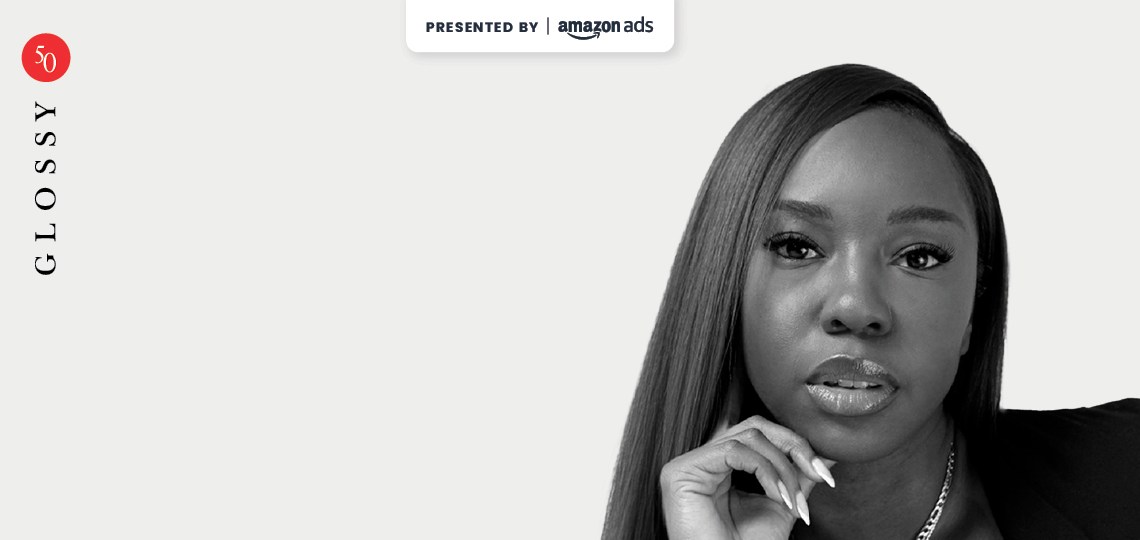The Glossy 50 honors the year’s biggest changemakers across fashion and beauty. More from the series →
The Changemakers: The disruptors driving values-based industry evolution
Olamide Olowe
Founder and CEO, Topicals
At 23 years old, Olamide Olowe became the youngest Black woman to raise over $2 million in funding in 2020. By November 2022, her skin-care brand Topicals received an additional $10 million in a Series A financing round. With revenue growth reaching 657% year-over-year in 2022, the brand reached profitability and globally expanded its Sephora presence this year, as it continued to cultivate a loyal customer base through innovative IRL and digital marketing.
You just secured $10 million in funding. What does this mean for the growth of the brand?
“We’re going to use the funding for inventory, because we’re continuously churning through our inventory, given the sales we’ve had so far on our direct-to-consumer site. We’re also going to invest in cultural storytelling, making sure we’re highlighting the right communities. We’re telling stories and doing marketing that feels very inclusive and centers on voices that haven’t really been heard. And lastly, we’re using it to not only hire new people, but also to support the people we have on our team now.”
What have been the biggest factors contributing to the brand’s growth in the past year?
“We have an ambassador program of over 3,500 people. And it’s been super amazing to take folks who typically have not seen themselves represented in beauty and create a community for them to find and connect with others, but then also share their love for the brand.
We’re also focused on cultural storytelling — making sure we’re at the center of culture — whether that’s through listening parties for some of our favorite R&B and rap artists, or events like Essence Fest or ComplexCon in the future. There are places and spaces for us to connect with communities of color, specifically, places that haven’t been centered on beauty.
And then lastly, we’ve been really strategic about the products we’ve launched. And they’ve been products in categories that have been really sleepy. Instead of us having to compete with hundreds and thousands of products and subcategories, we’ve been able to be really niche and target specific concerns that weren’t being answered for customers.”
What have been your best sellers this year?
“Faded serum is our best-selling product, both the mini and the full size. Hyperpigmentation is a skin condition that primarily affects people of color, but it can also affect anyone of any color if they have sun damage or experience any kind of hormonal issues. When I went out to pitch investors, everyone was like, ‘As a chronic skin-care brand, you should probably be focusing on acne, not hyperpigmentation.’ But I helped them understand that 80% of people have hormonal issues, sun damage or are a person of color and will experience hyperpigmentation. That is a huge subsection of the United States. It was a category that was extremely overlooked, but massive. I’d actually argue that hyperpigmentation is a bigger category than acne, but because it affected people of color most, a lot of investors who weren’t privy to that community just didn’t see it as a big issue.”
What is unique about the way the Gen-Z customer shops for skin care?
“It’s been really great for us over this last year to invest in TikTok to see the fruits of our labor pay off as our products go viral. People are finding out about them through TikTok. What we believe, and we’re still in the early days of proving this out, is that content is so king when it comes to this relationship with the customer. That’s especially true for us, as we try to rewrite a cultural narrative around skin conditions. We are pressing deeper into creating our own media company, in a sense.”
Are you launching new products next year?
“We’ll go into more skin conditions, and we’ll go deeper into certain skin conditions that we’re in currently.”
Do you have any plans for distribution expansion into new retailers or markets?
“We’re currently available in all 500 Sephora stores in the U.S., but there’s opportunities for us to increase our merchandising within the store, so we’ll do that. We’re also keeping our eye on international expansion, but not going too fast.
The majority of people of color live outside of the United States. That is a core part of who we are as a brand, so we need to make sure we’re in those places where they can shop.”
Click here to see all 2022 Glossy 50 honorees.




